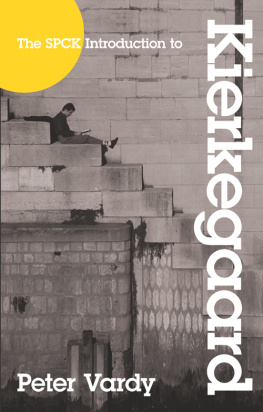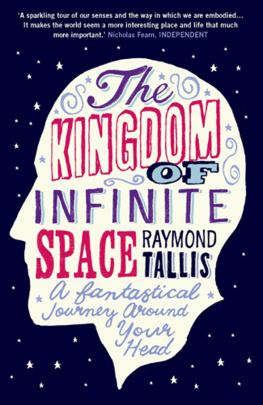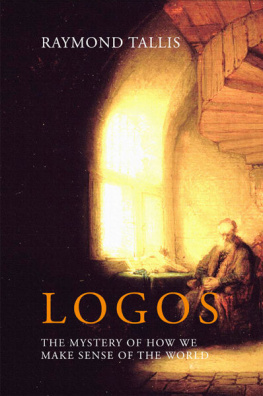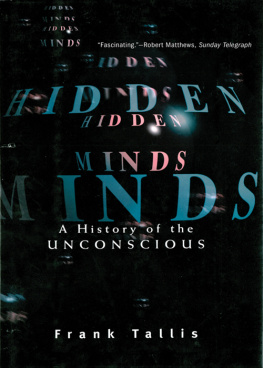Raymond Tallis - Why the Mind Is Not a Computer
Here you can read online Raymond Tallis - Why the Mind Is Not a Computer full text of the book (entire story) in english for free. Download pdf and epub, get meaning, cover and reviews about this ebook. year: 2013, publisher: Andrews UK Limited 2013, genre: Religion. Description of the work, (preface) as well as reviews are available. Best literature library LitArk.com created for fans of good reading and offers a wide selection of genres:
Romance novel
Science fiction
Adventure
Detective
Science
History
Home and family
Prose
Art
Politics
Computer
Non-fiction
Religion
Business
Children
Humor
Choose a favorite category and find really read worthwhile books. Enjoy immersion in the world of imagination, feel the emotions of the characters or learn something new for yourself, make an fascinating discovery.

- Book:Why the Mind Is Not a Computer
- Author:
- Publisher:Andrews UK Limited 2013
- Genre:
- Year:2013
- Rating:4 / 5
- Favourites:Add to favourites
- Your mark:
- 80
- 1
- 2
- 3
- 4
- 5
Why the Mind Is Not a Computer: summary, description and annotation
We offer to read an annotation, description, summary or preface (depends on what the author of the book "Why the Mind Is Not a Computer" wrote himself). If you haven't found the necessary information about the book — write in the comments, we will try to find it.
Why the Mind Is Not a Computer — read online for free the complete book (whole text) full work
Below is the text of the book, divided by pages. System saving the place of the last page read, allows you to conveniently read the book "Why the Mind Is Not a Computer" online for free, without having to search again every time where you left off. Put a bookmark, and you can go to the page where you finished reading at any time.
Font size:
Interval:
Bookmark:
Title page
Why the Mind Is Not a Computer
A Pocket Lexicon of Neuromythology
Raymond Tallis
Copyright page
Copyright Raymond Tallis, 1994 & 2004
First published 1994 by Ferrington, Bookseller & Publisher, under the title Psycho-Electronics .
Reprinted 1999 by Macmillan Press Ltd, in On the Edge of Certainty .
2004 edition reprinted by permission of Palgrave Macmillan.
2013 digital edition by Andrews UK Limited
www.andrewsuk.com
The moral rights of the author have been asserted.
No part of any contribution may be reproduced in any form without permission, except for the quotation of brief passages in criticism and discussion.
Originally published in the UK by Imprint Academic
PO Box 200, Exeter EX5 5YX, UK
Originally published in the USA by Imprint Academic
Philosophy Documentation Center
PO Box 7147, Charlottesville, VA 22906-7147, USA
Introduction
From the Theory of Meaning to the Philosophy of Mind
In the last century, philosophy in the English-speaking world took a linguistic turn. This had two major manifestations: the radical claim that philosophy was primarily and essentially about the relationship between language and the world; and the less radical claim that many philosophical problems could be solved by paying attention to the way words were used in ordinary lifewhen they were not idling, as they seemed to be in much philosophical talk. One of the most conspicuous casualties of this approach was the epistemological project, which Descartes had identified as the first philosophy, and the Cartesian approach to the mind. Indeed, Frege was seen by his leading commentator, Michael Dummett, as the twentieth centurys retort to Descartes: he overturned the Cartesian revolution that had elevated epistemology and the philosophy of mind to the status of the first philosophy and put the philosophy of language and the theory of meaning in its place.
For many people, the linguistic turn seemed eventually to reduce philosophy to a series of sterile exercises; though no-one actually reading the writings of, say, Gilbert Ryle or J.L. Austinlet alone less narrowly linguistic analytical philosophers such as W.V. Quine, P.F. Strawson or Saul Kripkecould avoid being amused, stimulated and challenged. The stigma of triviality, however, stuck and in the case of many minor practitioners it was justified. Too many philosophers seemed satisfied with solving petty problems, and affirming semantic distinctions, of interest only to other philosphers. It was inevitable that, sooner or later, the kind of metaphysicalising that Frege and Wittgenstein had encouraged many philosophers to despise would return. By the end of the 1970s, as Simon Blackburn remarked, the philosophy of mind had displaced the philosophy of language as the queen of the philosophical sciences. Epistemology of a sorta genetic rather than a justificatory epistemologywas back.
There were many specific reasons for this anti-linguistic turn. It became increasingly obvious that a stand-alone theory of meaning was not possible. Freges insistence that words had meaning only in the context of propositions or sentencesa point he used in order to attack a psychologism that tried to cash verbal meanings as mental images (and other contents of consciousness) associated with individual wordsopened the door to the acknowledgement that, as Wittgenstein put it, propositions had meaning only in the stream of life. When the theory of meaning was applied to natural languagesthe ultimate target of any such theoryit had therefore to take account of things that had little to do with the rules governing the construction of well-formed formulae and for deriving one from another; indeed, things outside language narrowly construed. Austins emphasis on speech acts also widened the scope of linguistic philosophy beyond the horizon of the Ordinary Language Philosophy particularly associated with his name. Philosophers such as H.P. Grice emphasised how speech depended upon speakers communicating their intentions and recipients understanding those intentions.
None of this of course would have come as a revelation to someone not trained in a philosophical tradition that hoped to tame natural languages by reducing them to formal features similar to those seen in mathematical systems. It was, however, the death knell of the Fregean project of logicising language and, as a consequence of this, the dream of solving or dissolving philosophical problems by making philosophical discourse logically more transparent. The theory of meaning had to take account of the fact that meaning was something that people meant and other people had to understand as being meant. It was a matter of consciousness as well as of concepts. The consequences were spelt out by John Searle in his influential book Intentionality , published in 1983:
A basic assumption behind my approach to the problems of language is that the philosophy of language is a branch of the philosophy of mind. (Searle, 1983, p.vii)
The thinking that lay behind this was, as we shall see, lost when the new philosophy of mind got underway.
The Analytical Heritage and the Aetiology of Neuromythology
When the theory of mind returned as a respectable preoccupation of philosophers it was a rather different activity from the metaphysicalising of the past. It was marked by habits of thought associated with the analytical tradition. At least two characteristics of analytical philosophy survived the collapse of what we might call the post-Fregean project. These were, first, a respect for science and, secondly, anti-psychologism or, more widely, a preference for a philosophy of concepts over a philosophy of consciousness. A third characteristican obsessive concern with appropriate use of languagedid not, alas, carry over into the new philosophy of mind. Which is why this Lexicon has been necessary.
Respect for science is an indubitable part of the analytical heritage. This was a key aspect of the anti-metaphysical stance of leading figures in the Vienna Circle, whose influence, through the diaspora of the 1930s, was widespread and enduring. For some, the attitude to science went beyond simply accepting its findingsrather than challenging them with metaphysical ideas dreamed up in armchairs or religious ones preached from pulpitsto thinking of philosophy as in important respects a commentary on, or unifier of, science. Many philosophers were also attracted by the model of science as a cooperative endeavour: progress in philosophical problems would be the result, not of the inspired guesswork of charismatic individuals of genius, but of the painstaking labours of many professionals working together. Austin commended Neither a be-all nor an end-all be as a motto for philosophers.
Eventually, admiration for science and its methods modulated into something more subservient. Some thinkers began to agree with their more scornful scientific colleagues that in many areas of investigation philosophy was an anachronism. Philosophical investigations, after all, lacked sophisticated instrumentation: intuition-driven arguments, entangled with everyday prejudices, could hardly match the discovery procedures of science. The notion that philosophy was merely immature science particularly haunted the revived philosophy of mind. Quines position that traditional epistemology was simply a rather primitive precursor of cognitive psychology seemed a depressing truth. Respect for the findings and critical attitudes of science modulated into what might be called science-cringe.
Science-cringe was reinforced by dramatic developments in science itself. For the philosophy of mind, progress in the second half of the twentieth century in basic neurosciencesneuroanatomy, neurophysiology, neuropharmacology, neuropsychology, etc.was of particular significance. These seemingly relevant sciences had apparently greatly enhanced their explanatory power by the acquisition of new techniques of exploring brain function (such as macroscopic and microscopic electrophysiology, immunology, imaging of the living brain) and new conceptual frameworks such as those derived from computer science. While philosophers might take pride in being anti-Cartesian, they felt increasingly uneasy about talking about the mind without reference to the sciences of the mind, if only because the latter were making such a big noise. While psychologismthe nineteenth-century doctrine that reduced logical entities, such as propositions, universals and numbers, to mental states or mental activities and subordinated much philosophy to branches of empirical psychologywas still decidedly off the menu, a philosophy of mind that took account of the findings of empirical neuroscience became increasingly respectable. Philosophers, moreover, were impressed by the arguments of U.T. Place, D.M. Armstrong and others in the 1950s and 1960s that the mindbrain identity theorywhich justified the connexion between neuroscience and the philosophy of mindneed not be self-contradictory. The identification of mental events with neural ones could not be dismissed, it was argued, as a mere category error or a logical blunder. What was more, those who led the reconceptualisation of mind from the direction of empirical science, such as Jerry Fodor, were philosophically sophisticated and brought with them an understanding of language that was highly formalised and, at the same time, rooted in both empirical psychology and neuroscience.
Next pageFont size:
Interval:
Bookmark:
Similar books «Why the Mind Is Not a Computer»
Look at similar books to Why the Mind Is Not a Computer. We have selected literature similar in name and meaning in the hope of providing readers with more options to find new, interesting, not yet read works.
Discussion, reviews of the book Why the Mind Is Not a Computer and just readers' own opinions. Leave your comments, write what you think about the work, its meaning or the main characters. Specify what exactly you liked and what you didn't like, and why you think so.







